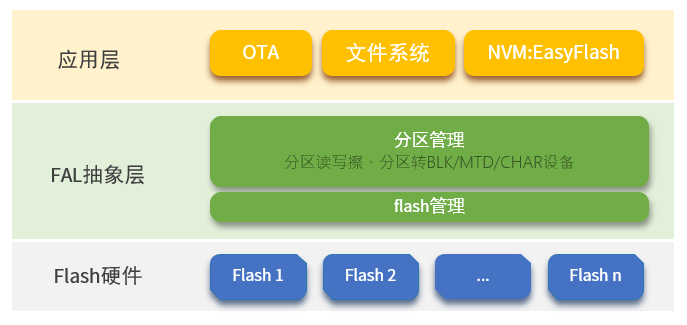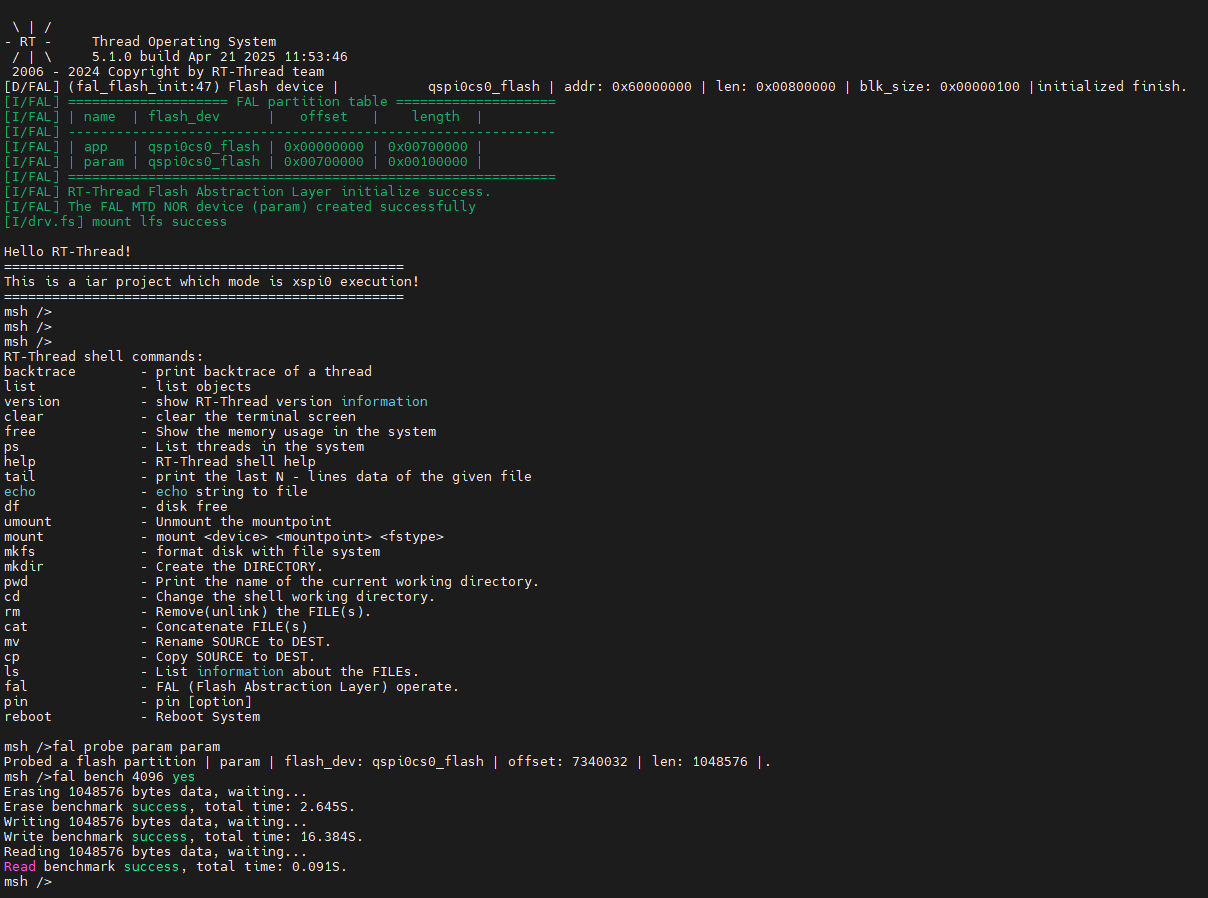Filesystem Usage Instructions
English | 中文
Introduction
FAL (Flash Abstraction Layer) is an abstraction layer for managing and operating Flash devices and Flash-based partitions. It provides a unified API for upper-layer Flash and partition operations (as shown in the framework diagram below), with the following features:
Supports a statically configurable partition table, which can be associated with multiple Flash devices.
The partition table supports automatic loading, avoiding the issue of the partition table being repeatedly defined in multi-firmware projects.
Lightweight code with no dependency on an operating system, allowing it to run on bare-metal platforms, such as bootloaders with limited resources.
A unified operation interface ensures the reusability of underlying Flash drivers for components that rely on Flash, such as file systems, OTA, and NVM (e.g., EasyFlash).
Built-in Finsh/MSH-based test commands, enabling developers to read, write, and erase Flash or partitions via shell commands with byte-level addressing, which facilitates debugging and testing.

In this example, the EtherKit onboard GD Flash is combined with the RT-Thread FAL component to build a file system using littlefs.
Hardware Overview

Software Overview
The source code for file system initialization in this example is located at:
../board/ports/filesystem/drv_filesystem.c
/*
* Copyright (c) 2006-2021, RT-Thread Development Team
*
* SPDX-License-Identifier: Apache-2.0
*
* Change Logs:
* Date Author Notes
* 2025-02-07 newflydd@gmail.com the first version
*/
#define DBG_TAG "drv.fs"
#define DBG_LVL DBG_LOG
#include <rtdbg.h>
#include <rtthread.h>
#include <fal.h>
#include <dfs_fs.h>
int initFileSystem()
{
fal_init();
// register onchip flash tail area as littlefs
struct rt_device* flashDev = fal_mtd_nor_device_create("param");
if (RT_NULL == flashDev)
{
LOG_W("create fal device failed");
return RT_ERROR;
}
if (RT_EOK != dfs_mount("param", "/", "lfs", 0, RT_NULL))
{
LOG_W("mount lfs failed once, try to format it");
if (RT_EOK != dfs_mkfs("lfs", "param"))
{
LOG_W("mkfs lfs failed");
return RT_ERROR;
}
LOG_I("mkfs lfs success");
if (RT_EOK != dfs_mount("param", "/", "lfs", 0, RT_NULL))
{
LOG_W("mount lfs failed");
return RT_ERROR;
}
}
LOG_I("mount lfs success");
return RT_EOK;
}
INIT_ENV_EXPORT(initFileSystem);
Build & Download
RT-Thread Studio: Download the EtherKit resource pack from the RT-Thread Studio package manager, then create a new project and compile it.
IAR: First, double-click
mklinks.batto generate links for thert-threadandlibrariesfolders. Then, use Env to generate the IAR project. Finally, double-clickproject.ewwto open the IAR project and compile it.
Once compiled, connect the development board’s JLink interface to the PC, and download the firmware to the development board.
Running Result
Press the reset button to restart the development board and observe the terminal logs from the board.

Run the following commands to start the FAL read/write test:
> fal probe param param
> fal bench 4096 yes